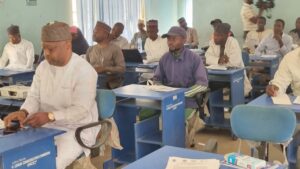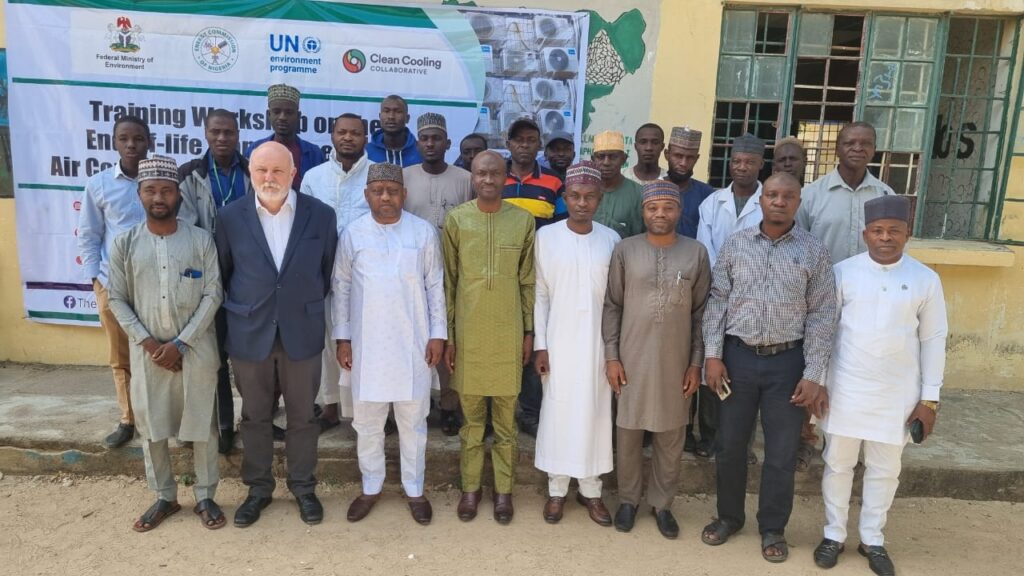Proper disposal of old air conditioners, refrigerators, and other electrical waste has been described as a major catalyst in protecting the ozone layer and mitigating climate change.
Nigeria’s minister of environment, Alhaji Balarabe Abbas Lawal, disclosed this while declaring open a workshop on the end-of-life management of air conditioners and refrigerants held in Kano.
The project tagged scaling up energy-efficient and climate-friendly cooling in Nigeria’s NDC revision, was coordinated by the ECN with technical assistance by the UNEP U4E, implemented by SON and NOO federal ministry of environment, supported by clean cooling collaborative.
Represented by the director of national ozone officer, Engineer Idris Abdullahi, pointed out that, proper management of end of life electronic equipment will reduce environmental impact associated with hazardous waste to maintain a healthy environment.
The minister maintained that, the workshop was organized to strengthen the capacity of stakeholders to develop and promote initiatives that will mitigate the environmental and health risks associated with used ACs.
“Enhance the capacity of the relevant stakeholders to sustainably manage the end of life components of ACs”
The head of energy transition unit energy commission of Nigeria ECN Dr. Shehu Mustafa pointed out that, the collective effort is aimed at accelerating the transition to energy efficient air conditioners ACs with climate friendly refrigerants, consistent with Nigerias climate targets.
“Together we can ensure obsolete air conditioning equipment are properly processed, and create a future where energy efficient and climate friendly air conditioning technologies become a standard in Nigeria”
The deputy director, group head, electrical electronics standards organization of Nigeria, Engineer Isma’ila Lawal explained that SON has developed a standard for new ACs and disposal of the new ones.
“The danger is enormous, the use of gases that are dangerous to the ozone layer causes cancer”
A participant who doubles as a teacher Kano government technical college Mu’azu Musa Kalla described the workshop as apt.

